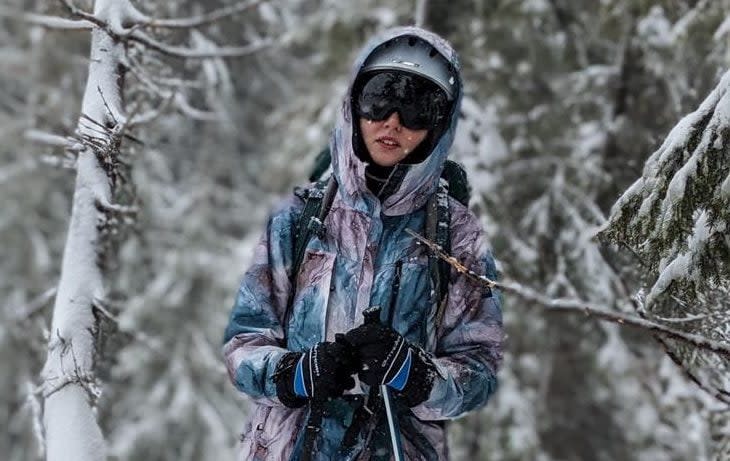How Ukraine’s ski resorts have given winter respite to its war-weary citizens

Not so long ago – before the pandemic, before the war – Bukovel, Ukraine’s biggest and best-known ski resort, expected to host around two million skiers each winter. Those skiers came for the long season lasting until May, for the densely wooded slopes topping out at 1,372m, for 68km of pistes and 19 lifts spread over five mountains, for 11km of black runs. A quarter of them came from abroad. Indeed, such was Bukovel’s reputation that it was once a contender to host the 2022 Winter Olympic Games, later awarded to Beijing.
The resort lies high in the Carpathian mountains of Western Ukraine, above the village of Polyanytsya, part of a sprinkling of around 50 ski resorts found close to the country’s borders with Romania, Slovakia and Hungary. Most are small operations with just a few kilometres of pistes and two or three lifts.
Some US$400 million (£325 million) had been invested in Bukovel since 2002, according to managing director and co-owner Oleksandr Shevchenko, leading to the creation of more than 50,000 tourist beds and more than 100,000 jobs. The future looked bright.
Then came Russia’s invasion, on February 24 2022. As the tanks rolled towards Kyiv, the resorts closed, despite being far from the war in the east. For obvious reasons, winter sports were the last thing on anyone’s mind.

However, perhaps surprisingly, this season some resorts – Bukovel among them – have reopened, offering relief to those seeking a glimpse of normality far from the conflict.
“We are open as normal but don’t work all the ski lifts on all the days because we have fewer guests,” a spokesman from Bukovel told The Telegraph.
Nearby Dragobrat in the Zakarpattia Oblast region, known for its freeride and backcountry terrain, has also opened up and, according to one hotel owner, business has been reasonably brisk.
“It seems that skiers don’t care so much about the dangers of war because this winter – while not completely normal – was much better than we were expecting,” said Yarema Borysiak, owner of the hotel Yaremyna Khata and Dragobrat Freeride Centre. “We had some guests from Poland, the US, Denmark and Slovakia as well as Ukraine – and had a mix of powder days, bluebird days as well as windy and cloudy days too. We’ve all stayed open because we want to keep Ukraine’s economy going and this season we had a lot of military guests who came to recharge with skis and snowboards.”
Ukraine IT consultant Iryna Plyushch, 28, from Ivano-Frankivsk, was one of those skiers determined to get away this winter. She recently spent a long weekend ski touring in the Dragobrat area to celebrate a friend’s birthday.
“We were due to go [to the resort] on February 24 last year, but it was cancelled because war broke out that day,” said Iryna. “We were determined to re-write this day and go and regain our normality. I have a lot of friends in the armed forces and at first I was ashamed to take a rest and relax. But after I spoke to them they said, ‘please do it: you need to rest, you’re fighting for your normal life’. So we did.
“There were about 15 of us, some friends brought their dogs, we spent three days ski touring,” she said. “In Dragobrat everything is working as normal and there were a lot of people there.”
Not everything has restarted in this “new normal” for Ukrainian winter sports. Volodymyr Matkovskyi is co-founder of tour company Active Ukraine, based in Ivano-Frankivsk, a gateway for the Carpanthian Mountains, 600km away from Kyiv. Before Covid the company offered a variety of tours, from winter hiking to backcountry and ski touring in the Bukovel and Dragobrat areas.
“We have had zero work since the Covid shutdown in early 2020, the business is not operating as it was only for foreign travellers,” said Matkovskyi. “We offered backcountry, some snow cat skiing and freeriding but as well as foreign guests being unable to come to Ukraine at the moment, most of my guides, suppliers or instructors are either at war or [have] escaped to Western Europe.

“People are looking for opportunities to distract themselves from the current situation. I’m doing everything I can to make money and I’m currently helping a friend run a rafting camp on Ukraine’s biggest river, Dnister. At some point people have to relax, to deconstruct from all the horrible news. There are no signs of the war in the mountains and while there are not as many visitors to this area as during peacetime, people are still coming.”
Matkovski ends on a note of extraordinary optimism: “If the war ends in a month the season is long here – until May – so there will still be snow if the borders open.”
The FCDO currently advises against all travel to Ukraine.


